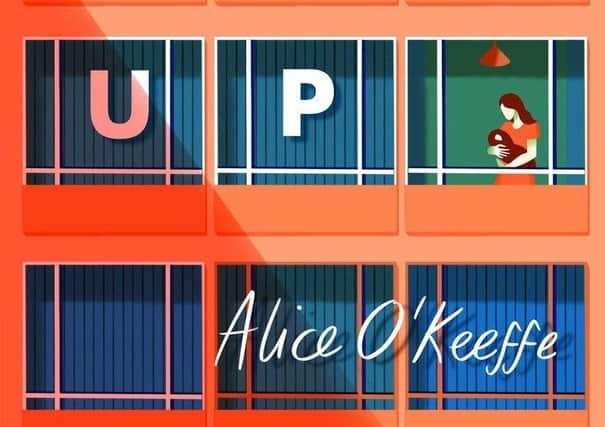Book review: On the Up, by Alice O’Keefe


Their living arrangements are cramped and unsuitable for small children and she dreams of buying a house with a garden, but even the most hideous examples – smelling of fish and without a kitchen or bathroom – are beyond their means in a metropolitan housing market which has left such families behind.
The pressures of a new baby and a toddler aren’t made any easier by noisy neighbours, and Sylvia has complained about their repetitive loud RnB music so often that the diary in which she records incidents and the man she speaks to at the council have become a sort of support service. Anyone who has ever had a new baby will recognise the almost surreal obsession with its sleeping patterns, the constant fears for your child and the tensions in a relationship that money worries bring.
Advertisement
Hide AdOn the Up is also a discussion of Sylvia’s sense of place, and of home. The narrative involves a threat to the housing estate where she lives from developers, who want to evict the tenants to build private accommodation. From a position of being lost in her own world, the drive to oppose this spurs Sylvia into action and helps revive her sense of community.
The story feels a little trite – a group of strangers becoming friends while fighting the man – and the characters who populate it, while recognisable, can feel stereotyped; Obe, for example, is an idealist who quotes poetry and doesn’t do his fair share of housework and cooking. Sylvia’s sister Lou, an activist, has bright pink hair while ethnically diverse neighbours are discovered to be wise and kind. The representative of the developers sports too-white teeth and a perma-tan through which he grins toadily as he discusses corporate responsibility and housing for the 21st century.
You are never in any doubt about whose side you are meant to be on but Sylvia herself is a believable character – a mixture of crippling self-doubt and new mother ferocity.
Her childhood memories of her late father are very touching, too: “I always had to start with his smell, a 1980s man blend of old sweat, fag smoke and Pears soap. Once I had that, I could feel his arms around me, the scratchy wool of his patterned tank top and the nobbly bone of his shoulder.”
Sylvia’s view of her relationship with Obe is also on point. “After four years together, our decent, kind, presentable facades had been chip-chipped away by relentless broken nights, by the ever-present financial crisis. We had reached some kind of nadir of each other’s personalities, a stripped-back place where his insecurity rubbed against my insecurity, my need against his.”
Such descriptions are incisive but too often the narrative gets in the way and the tone switches to carry the story along in a world furnished by Bugaboo strollers and Ottolenghi recipes. Such details are distracting, even as such values are being rejected by Sylvia.
Advertisement
Hide AdOn the Up describes a life which will strike a chord with many thirty-somethings struggling with negotiating the adult world of parenting, relationships, finances, community responsibility and finding a suitable home. The highlights are Sylvia’s inner thoughts in the tranquil small hours spent cradling a tiny baby, looking out over London and worrying, cogitating and working through problems. It is an experience which many will recognise, wherever they live. On the Up, by Alice O’Keefe, Coronet, 316pp, £16.99